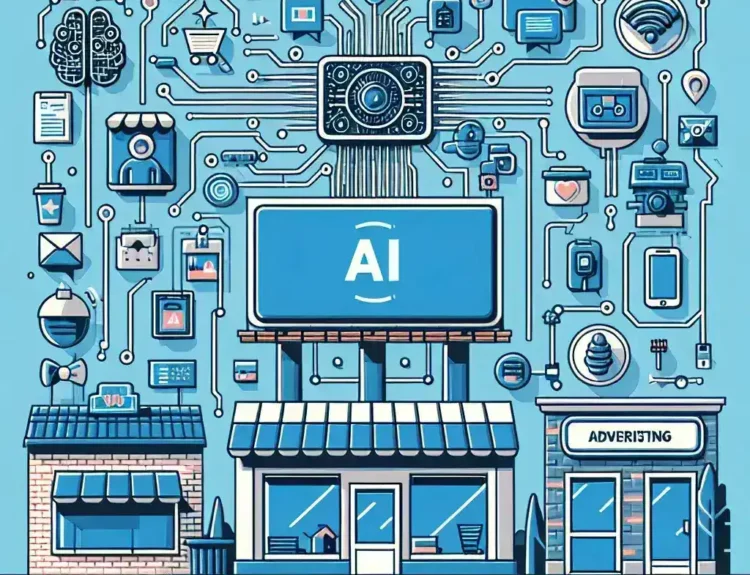Becoming a software engineer is an exciting and rewarding career choice, but it’s important to be well-prepared for the journey ahead. In this article, we delve into the key insights and practical advice that every aspiring software engineer should know before taking the leap. From technical skills to soft skills and everything in between, this guide aims to help you navigate the challenges and enjoy the rewards of a career in software engineering.
The Importance of Strong Foundations
One of the most critical aspects of becoming a successful software engineer is building a strong foundation in computer science fundamentals. While the tech industry is constantly evolving, having a solid understanding of core concepts like algorithms, data structures, and computer architecture will serve you well throughout your career. Here are some key areas to focus on:
- Algorithms and Data Structures: These are the building blocks of software development. Understanding how to efficiently manipulate data and solve problems is crucial. Take the time to master sorting, searching, and graph algorithms, as well as common data structures like arrays, linked lists, and trees.
- Programming Languages: While you can become a software engineer by specializing in one language, it’s beneficial to be familiar with several. Languages like Python, Java, C++, and JavaScript are widely used and can help you adapt to different projects and environments.
- Computer Architecture: Understanding how computers work at a hardware level can greatly enhance your ability to write efficient and optimized code. Gain knowledge about processors, memory, and storage systems.
The Role of Continuous Learning
The tech industry is known for its rapid pace of change. As a software engineer, you need to be committed to continuous learning. Here are some ways to stay updated and grow your skills:
- Online Courses: Platforms like Coursera, Udemy, and edX offer a wealth of courses on various programming languages, frameworks, and technologies. Take advantage of these resources to stay current.
- Books and Documentation: Reading books and official documentation is an excellent way to deepen your understanding of specific topics. Some must-read books include ‘Clean Code’ by Robert C. Martin and ‘Design Patterns’ by Erich Gamma, Richard Helm, Ralph Johnson, and John Vlissides.
- Community Engagement: Joining online communities and forums like Stack Overflow, GitHub, and Reddit can provide valuable insights and networking opportunities. Engage in discussions, ask questions, and contribute to open-source projects.
Soft Skills Matter
Technical skills are essential, but soft skills are equally important in a software engineering career. Here are some soft skills that will help you thrive:
- Communication: Effective communication is crucial when working in a team. Whether you’re discussing project requirements with clients or collaborating with colleagues, being able to clearly articulate your ideas is a must.
- Problem Solving: Software engineering involves a lot of problem-solving. Develop your critical thinking and analytical skills to tackle complex challenges and come up with innovative solutions.
- Time Management: Managing your time efficiently is key to meeting deadlines and delivering high-quality work. Learn to prioritize tasks, set realistic goals, and maintain a healthy work-life balance.
Understanding the Development Process
The software development process involves more than just writing code. Familiarize yourself with the entire lifecycle, from planning and design to testing and deployment:
- Agile Methodologies: Agile methodologies like Scrum and Kanban are widely used in the industry. Understanding these methodologies will help you work effectively in dynamic and fast-paced environments.
- Version Control: Tools like Git are essential for tracking changes and collaborating with other developers. Mastering version control will ensure that your code remains organized and that you can revert to previous versions if needed.
- Testing and Debugging: Writing tests and debugging code are critical skills. Learn to write unit tests, integration tests, and use debugging tools to ensure your code is reliable and bug-free.
The Impact of a Positive Mindset
A positive mindset can make a significant difference in your software engineering career. Here’s how to cultivate and maintain a positive attitude:
- Embrace Challenges: View challenges as opportunities to learn and grow. Don’t be afraid to tackle difficult tasks or seek help when you need it.
- Stay Resilient: Setbacks and failures are part of the learning process. Stay resilient and keep pushing forward, even when things get tough.
- Seek Feedback: Constructive feedback is invaluable. Be open to receiving feedback and use it to improve your skills and performance.
The Role of Networking
Building a professional network is crucial in any career, and software engineering is no exception. Here’s how to network effectively:
- Industry Events and Conferences: Attend industry events and conferences to meet professionals, learn about the latest trends, and stay connected with the tech community.
- LinkedIn and Professional Groups: Utilize LinkedIn to connect with other software engineers and join professional groups related to your interests. Share your projects, articles, and insights to establish yourself as a thought leader.
- Local Meetups: Participate in local meetups and hackathons to network with like-minded individuals and gain practical experience. These events can also lead to job opportunities and collaborations.
Preparing for Technical Interviews
Technical interviews are a significant part of the job application process for software engineers. Here’s how to prepare:
- Practice Coding Challenges: Websites like LeetCode, HackerRank, and CodeSignal offer a variety of coding challenges to practice. Regular practice will help you build confidence and improve your problem-solving skills.
- Understand System Design: Many interviews include system design questions. Study how to design scalable and efficient systems, and practice explaining your thought process.
- Behavioral Questions: Be ready to answer behavioral questions about teamwork, communication, and problem-solving. Use the STAR method (Situation, Task, Action, Result) to structure your responses.
Building a Portfolio
A strong portfolio can set you apart from other candidates. Here’s how to build a compelling portfolio:
- Personal Projects: Work on personal projects that showcase your skills and creativity. Consider building a mobile app, a web application, or a data analytics tool.
- Open-Source Contributions: Contributing to open-source projects can demonstrate your expertise and commitment to the community. Find projects that align with your interests and start contributing.
- Professional Projects: If you have worked on projects during internships or part-time jobs, include them in your portfolio. Highlight your role, the technologies used, and the outcomes achieved.
The Importance of a Growth Mindset
A growth mindset is essential for long-term success in software engineering. Here’s how to cultivate a growth mindset:
- Continuous Improvement: Always look for ways to improve your skills and knowledge. Take on new challenges, learn new technologies, and seek feedback.
- Embrace Failure: View failures as learning opportunities. Analyze what went wrong, and use the insights to improve your future performance.
- Stay Curious: Maintain a sense of curiosity and wonder about the tech world. Explore new technologies, attend workshops, and stay informed about industry trends.
Managing Your Career Path
Your career as a software engineer is a journey, and it’s important to manage your path effectively. Here are some tips:
- Set Clear Goals: Define your career goals and create a roadmap to achieve them. Whether you aspire to become a senior engineer, a technical lead, or a product manager, having clear goals will guide your decisions.
- Seek Mentorship: Find a mentor who can offer guidance, support, and advice. Mentors can help you navigate career challenges and provide valuable insights.
- Stay Adaptable: The tech industry is constantly evolving. Be adaptable and open to change. Stay updated on new technologies, frameworks, and best practices.
Work-Life Balance
Maintaining a work-life balance is crucial for long-term success and well-being. Here’s how to achieve it:
- Set Boundaries: Establish clear boundaries between work and personal life. Avoid overworking and take time to relax and recharge.
- Pursue Hobbies: Engage in activities outside of work that bring you joy and help you unwind. Hobbies can also provide creative inspiration and reduce stress.
- Stay Healthy: Take care of your physical and mental health. Regular exercise, a balanced diet, and sufficient sleep are essential for maintaining your energy and focus.
Conclusion
Becoming a software engineer is a rewarding and challenging journey. By building a strong foundation, committing to continuous learning, developing essential soft skills, and maintaining a positive mindset, you can set yourself up for success. Don’t forget to network, prepare for interviews, build a strong portfolio, and manage your career path effectively. Lastly, remember to maintain a healthy work-life balance to ensure your well-being and long-term success. With the right preparation and mindset, you can thrive in the exciting world of software engineering.
Key Takeaways:
– Build a strong foundation in computer science fundamentals.
– Commit to continuous learning.
– Develop essential soft skills like communication, problem-solving, and time management.
– Understand the software development process.
– Cultivate a positive mindset.
– Network effectively.
– Prepare for technical interviews.
– Build a compelling portfolio.
– Manage your career path.
– Maintain a work-life balance.








